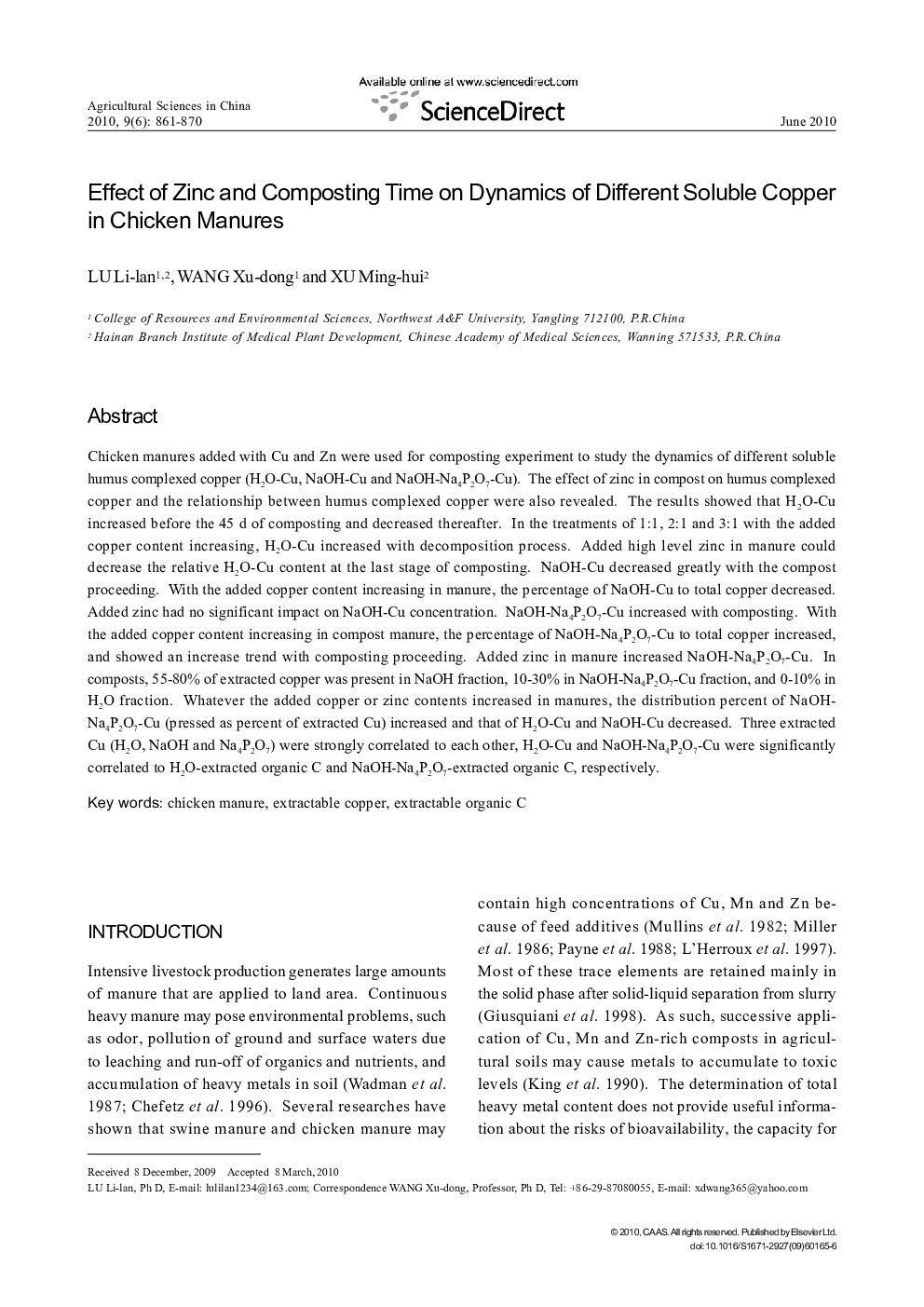| Article ID | Journal | Published Year | Pages | File Type |
|---|---|---|---|---|
| 4490133 | Agricultural Sciences in China | 2010 | 10 Pages |
Chicken manures added with Cu and Zn were used for composting experiment to study the dynamics of different soluble humus complexed copper (H2O-Cu, NaOH-Cu and NaOH-Na4P2O7-Cu). The effect of zinc in compost on humus complexed copper and the relationship between humus complexed copper were also revealed. The results showed that H2O-Cu increased before the 45 d of composting and decreased thereafter. In the treatments of 1:1, 2:1 and 3:1 with the added copper content increasing, H2O-Cu increased with decomposition process. Added high level zinc in manure could decrease the relative H2O-Cu content at the last stage of composting. NaOH-Cu decreased greatly with the compost proceeding. With the added copper content increasing in manure, the percentage of NaOH-Cu to total copper decreased. Added zinc had no significant impact on NaOH-Cu concentration. NaOH-Na4P2O7-Cu increased with composting. With the added copper content increasing in compost manure, the percentage of NaOH-Na4P2O7-Cu to total copper increased, and showed an increase trend with composting proceeding. Added zinc in manure increased NaOH-Na4P2O7-Cu. In composts, 55–80% of extracted copper was present in NaOH fraction, 10–30% in NaOH-Na4P2O7-Cu fraction, and 0–10% in H2O fraction. Whatever the added copper or zinc contents increased in manures, the distribution percent of NaOH-Na4P2O7-Cu (pressed as percent of extracted Cu) increased and that of H2O-Cu and NaOH-Cu decreased. Three extracted Cu (H2O, NaOH and Na4P2O7) were strongly correlated to each other, H2O-Cu and NaOH-Na4P2O7-Cu were significantly correlated to H2O-extracted organic C and NaOH-Na4P2O7-extracted organic C, respectively.
